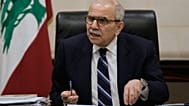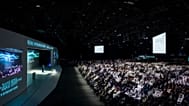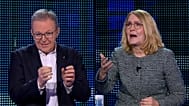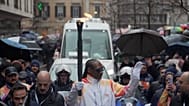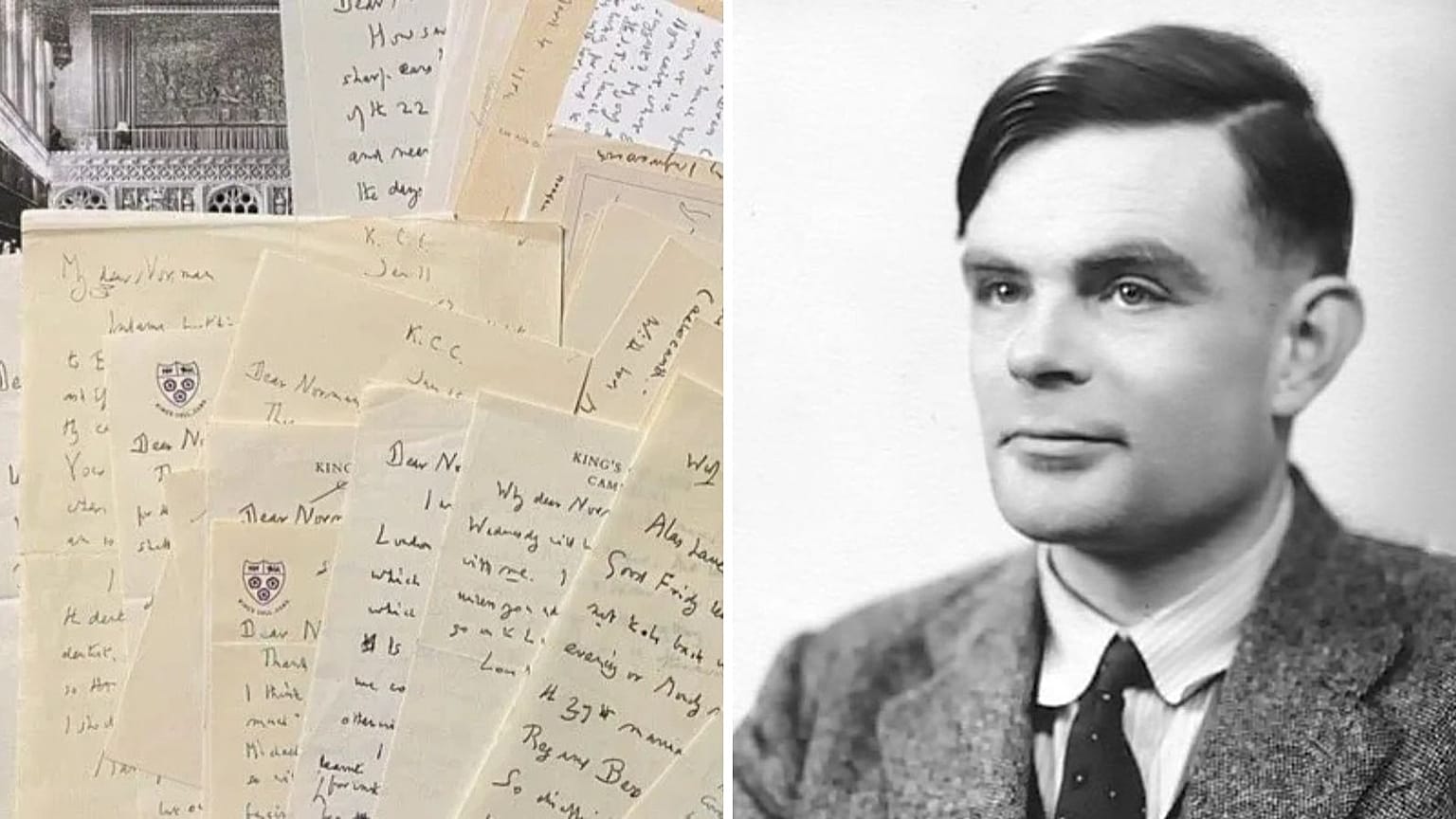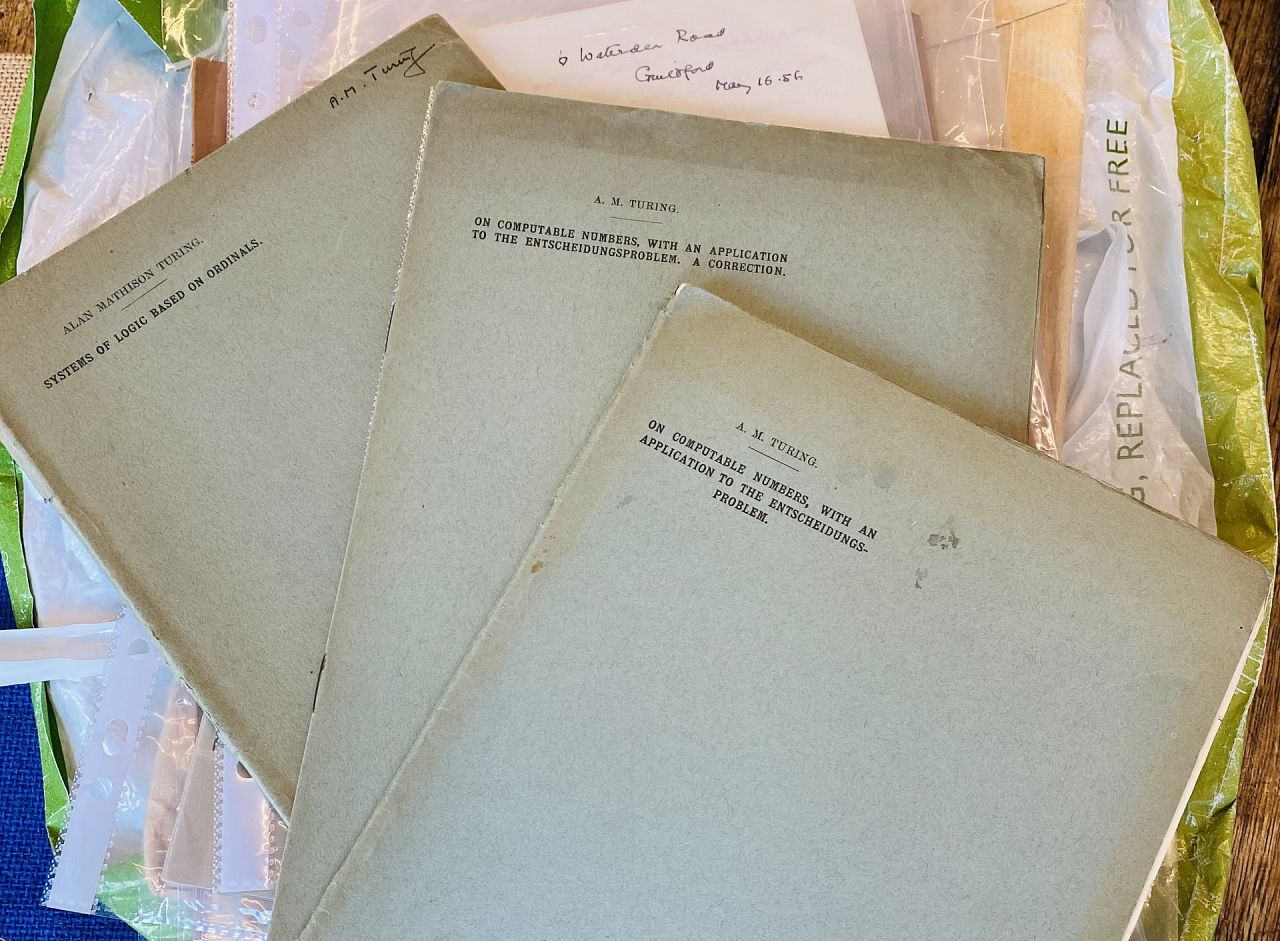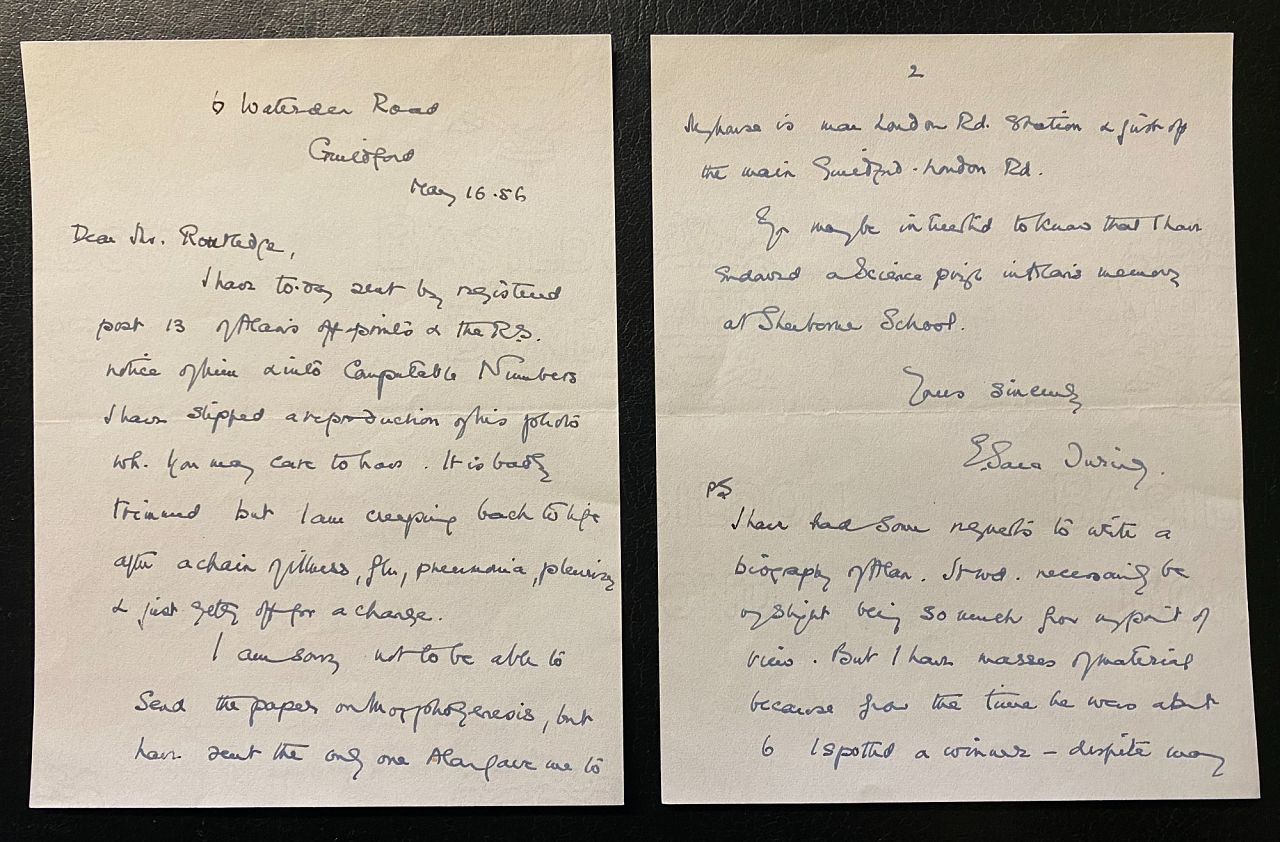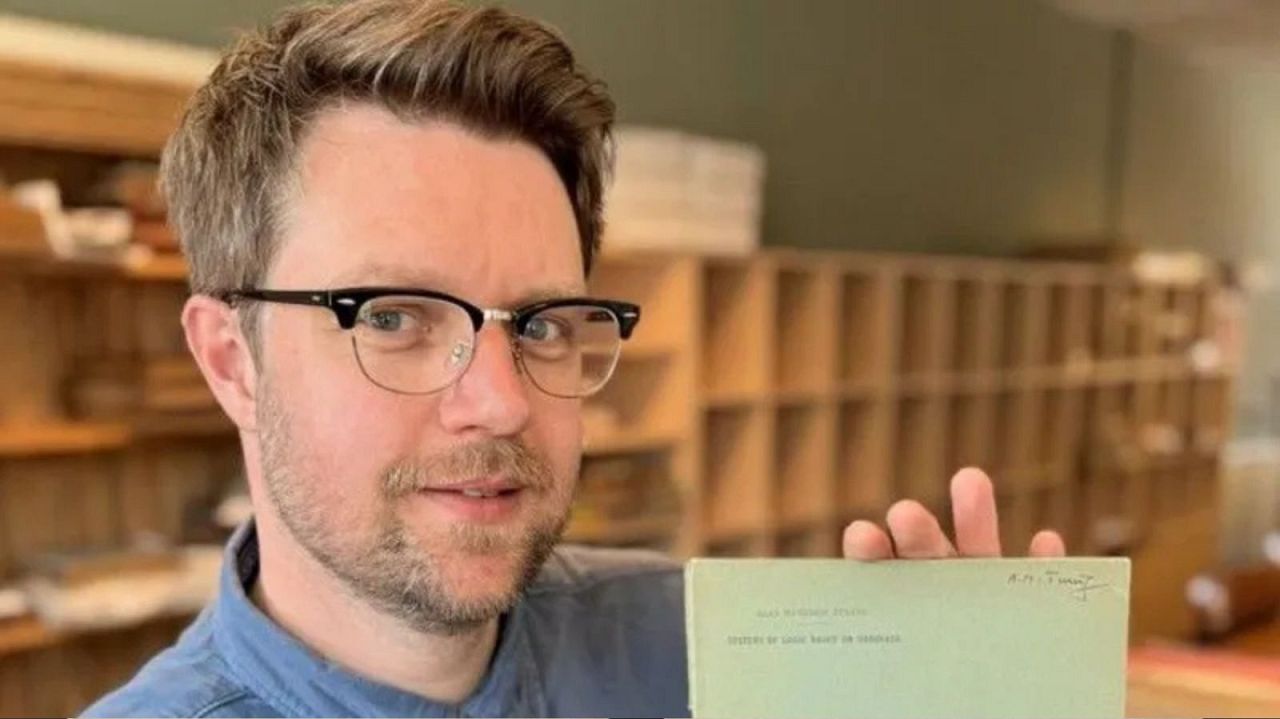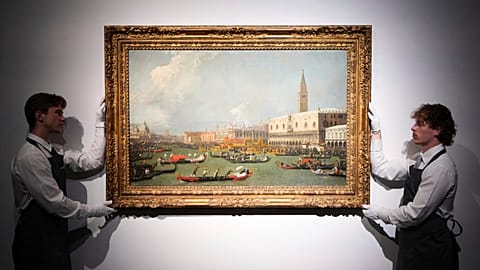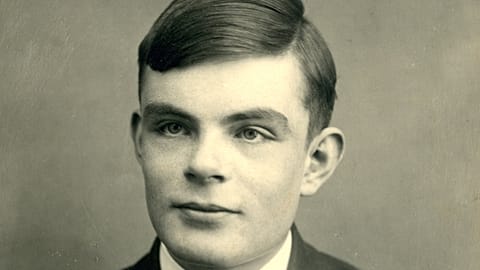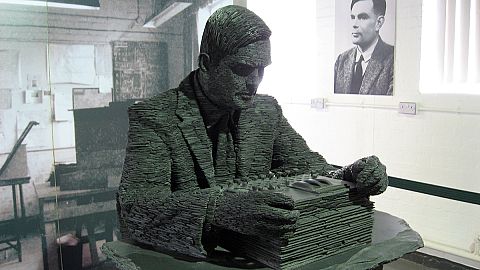A treasure trove of World War II codebreaker Alan Turing’s scientific papers has sold for more than three times their expected sale price after being saved from the shredder.
A collection of rare scientific papers written by mathematician, computer scientist and Second World War codebreaker Alan Turing has sold for a record £465,400 (€544,400) at auction in Lichfield, UK.
The documents were discovered in a loft at a property in Bermondsey, London, and were almost destroyed during a house clearance.
Some of the rare items that went under the hammer included a personal signed copy of Turing's 1938 PhD dissertation, "Systems of Logic Based on Ordinals", which sold for £110,500 (€129,200), as well as his paper "On Computable Numbers" - also known as "Turing's Proof" - which introduced the world to the idea of a universal computing machine in 1936.
The collection also included "The Chemical Basis Of Morphogenesis", which sold for £19,500 (€22,800). Dating from 1952, it is Turing’s last major published work.
The treasure trove of Turing material had originally been gifted to Turing’s friend and fellow mathematician, Norman Routledge, by Turing’s mother, Ethel. Routledge kept the papers and, on his death, they were taken to his sister’s loft.
Hansons Auctioneers had estimated the lots would sell for £40,000 to £60,000 each, but "On Computable Numbers" alone sold for £208,000 (€243,000).
Jim Spencer, director of Rare Book Auctions, said of the papers, which were brought to experts in a carrier bag: “Nothing could’ve prepared me for what I found in that carrier bag. These plain, academic papers were absolutely electrifying – they are the very bedrock of modern computing. Handling them was both humbling and haunting.”
He continued: “Knowing the tragic arc of Turing’s life only adds to the emotional weight. He was treated appallingly despite all he had done and yet, here, his ideas remain alive, relevant, and revolutionary.”
Spencer added: “This was the most important archive I’ve ever handled. The papers came within inches of being destroyed, and instead they’ve captured the world’s imagination. It’s a once-in-a-lifetime discovery – not just for collectors, but for the sake of preserving the story of one of the greatest minds in history.”
Turing is widely regarded as the father of computing science and played a central role in breaking the Enigma code, used by the Nazis during the Second World War.
After the war, he was convicted of being involved in homosexual acts and accepted a procedure commonly referred to as chemical castration as an alternative to prison. Turing took his own life on 7 June 1954, aged 41.
Following a campaign in 2009, British prime minister Gordon Brown made an official public apology for the “appalling way” Turing was treated after the war. Queen Elizabeth II granted a pardon in 2013.
The "Alan Turing law” is a term used informally to refer to a 2017 law in the UK that retroactively pardoned men convicted under historical legislation that outlawed homosexual acts.

